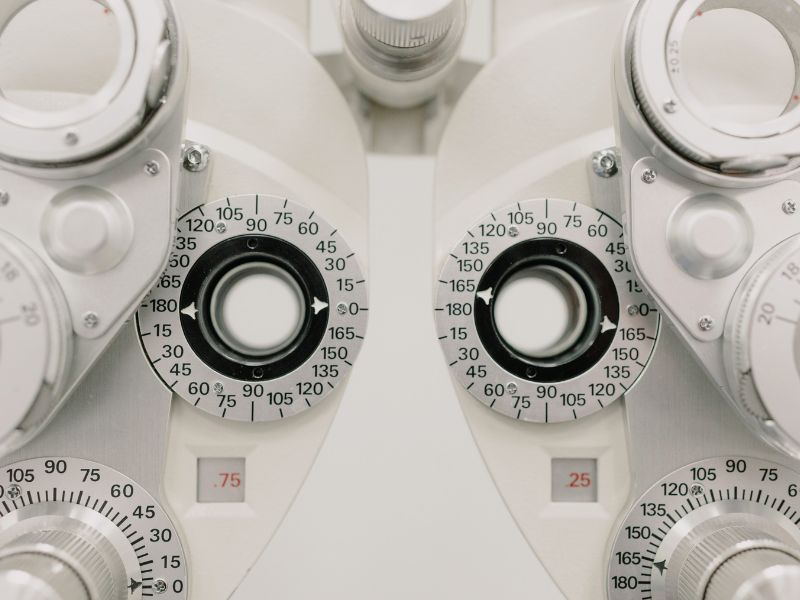What Does Optometric Mean?
When it comes to eye care, many people often confuse the roles of various professionals in the field. One term that frequently arises is “optometric.” In this blog post, we will explore what optometric means, its significance in eye care, and how optometrists play a crucial role in maintaining our visual health.
Understanding Optometry
Optometry is a branch of healthcare focused on the examination, diagnosis, treatment, and management of conditions related to the eyes and visual system. The term “optometric” refers specifically to anything related to this field. Optometrists are trained professionals who provide comprehensive eye care services, including vision testing, prescribing corrective lenses, and detecting eye diseases.
The Role of Optometrists
Optometrists are essential players in the healthcare system. They serve as primary eye care providers and are often the first point of contact for patients experiencing vision problems. Their responsibilities include:
- Comprehensive Eye Exams: Optometrists conduct thorough examinations to assess visual acuity and overall eye health. This includes checking for refractive errors (like nearsightedness or farsightedness) and evaluating the health of the retina and optic nerve.
- Prescription of Corrective Lenses: Based on their assessments, optometrists prescribe glasses or contact lenses to correct vision issues. They consider various factors such as lifestyle needs and personal preferences when recommending eyewear.
- Diagnosis of Eye Conditions: Optometrists are trained to identify common eye diseases such as glaucoma, cataracts, macular degeneration, and diabetic retinopathy. Early detection can lead to better management and treatment outcomes.
- Management of Vision Therapy: Some patients may require vision therapy for conditions like amblyopia (lazy eye) or strabismus (crossed eyes). Optometrists develop personalized treatment plans that may include exercises or specialized lenses.
- Co-management with Other Healthcare Providers: In cases where surgery or advanced medical treatment is necessary (such as cataract surgery), optometrists often work alongside ophthalmologists—medical doctors specializing in eye surgery—to ensure comprehensive patient care.
The Importance of Regular Eye Exams
Regular visits to an optometrist are crucial for maintaining good vision and overall eye health. Many people underestimate the importance of routine eye exams; however, these check-ups can reveal underlying health issues that might not be apparent otherwise.
Early Detection Saves Sight
Many serious eye conditions develop gradually without noticeable symptoms until significant damage has occurred. For instance:
- Glaucoma: This condition can lead to irreversible blindness if not detected early.
- Diabetic Retinopathy: Individuals with diabetes should have regular exams since this condition can cause vision loss if left untreated.
- Macular Degeneration: A leading cause of vision loss among older adults; early intervention can slow its progression.
By visiting an optometrist regularly—typically every one to two years—patients can catch potential issues early on when they are most treatable.
Education and Training for Optometrists
To become an optometrist, individuals must complete extensive education and training:
- Undergraduate Degree: Most aspiring optometrists start with a bachelor’s degree focusing on science courses such as biology and chemistry.
- Optometry School: After completing their undergraduate studies, students must attend an accredited four-year optometry program where they learn about ocular anatomy, physiology, optics, pharmacology, and patient care techniques.
- Clinical Training: During their education at optometry school, students undergo clinical training where they gain hands-on experience under supervision before becoming licensed practitioners.
- Licensing Examination: After completing their education requirements, graduates must pass a national board exam along with any state-specific licensing tests before practicing independently.
The Future of Optometry
As technology advances rapidly within healthcare fields—including telehealth options—optometry is also evolving. Many optometrists now offer virtual consultations for preliminary assessments or follow-up visits after initial examinations.
Additionally, innovations in diagnostic tools allow for more precise evaluations than ever before—enabling earlier detection of potential issues while enhancing patient experience through improved accuracy in prescriptions for corrective lenses.
What Does Optometric Mean? – Conclusion
In summary, “optometric” pertains directly to the field of optometry—a vital area dedicated to preserving our eyesight through comprehensive examinations performed by skilled professionals known as optometrists. These experts play an essential role in diagnosing visual impairments while providing effective treatments tailored specifically for each patient’s needs.
Regular visits to an optometrist not only help maintain optimal vision but also contribute significantly toward overall health by identifying systemic conditions that could affect one’s quality of life long-term. So next time you think about your eyes’ health—remember how crucial it is to consult your local optometrist!
Discover more great articles in our blog!

